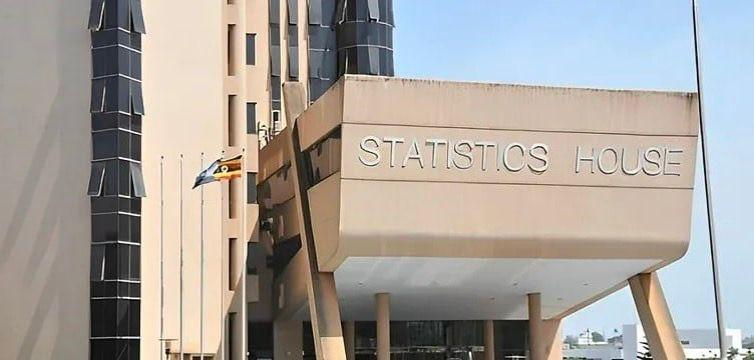Africa-Press – Uganda. Uganda’s household spending has surged dramatically over the past seven years, with Business-to-Consumer (B2C) transactions nearly tripling from Shs 34.2 trillion in the 2016/17 financial year to Shs 77.4 trillion in 2023/24, according to data released today during a professional seminar at Uganda Bureau of Statistics (UBOS) headquarters.
Presenting the findings, Senior Statistician Ezra Bwambale described the period as one of profound economic transformation, driven partly by the rapid adoption of digital technologies.
Globally, he noted, digital tools now contribute about 5 percent of GDP and 3 percent of employment, with the fastest uptake occurring in the Global South, Uganda included.
UBOS data shows robust growth across all major household expenditure categories. Spending on food and beverages rose from Shs 15.2 trillion to Shs 26.7 trillion, reflecting sustained demand for essential goods.
Non-durable goods and frequently purchased services saw the strongest expansion, surging from Shs 10.8 trillion to Shs 28.2 trillion. Durable products more than doubled, rising from Shs 9.0 trillion to Shs 22.6 trillion, signalling growing household confidence and investment in long-term assets.
The seminar also highlighted the rapid growth of domestic e-commerce. While still a small share of total household spending, online B2C transactions nearly tripled between 2019/20 and 2023/24, increasing the e-commerce share from 0.3 percent to 0.8 percent of total B2C value.
Online purchases of non-durable goods and services grew from Shs 25.4 billion to Shs 115.7 billion, while durable goods spending rose from Shs 14.2 billion to Shs 55.0 billion.
Food and beverage purchases via domestic platforms jumped from Shs 1 billion to Shs 18.1 billion. International e-commerce, though modest, recorded explosive growth, with non-durable goods and services purchases rising from Shs 3 million in 2019/20 to nearly Shs 5 billion in 2023/24.
UBOS officials stressed the importance of responsible use of digital information.
Florence Nambooze, Chairperson of the UBOS e-Resource Functional Committee, cautioned against downloading and redistributing electronic resources for commercial purposes, calling the practice both unethical and illegal, and urged stakeholders to uphold intellectual property standards as digital access expands nationwide.
Economists interpret the trends as evidence of a vibrant, modernising domestic economy powered by rising household demand, deeper digitisation, and evolving consumer behaviour.
The surge in non-durable goods spending suggests stronger essential consumption, while growth in durable goods reflects rising consumer confidence. Meanwhile, e-commerce acceleration highlights Uganda’s advancing digital maturity.
Experts emphasised that sustaining this momentum will require targeted investments in digital infrastructure, efficient logistics networks, and secure online payment systems to support Uganda’s evolving digital marketplace.
UBOS’s findings arrive at a pivotal moment as the country advances its national agenda for digital transformation and economic modernisation, showing measurable improvements in household activity and overall economic performance.
For More News And Analysis About Uganda Follow Africa-Press






